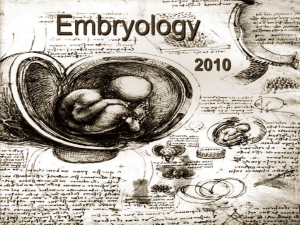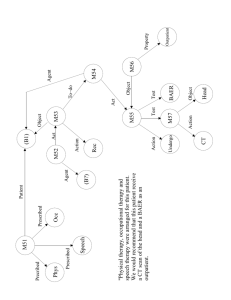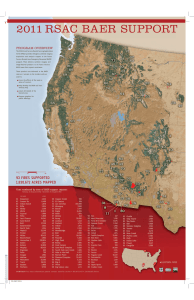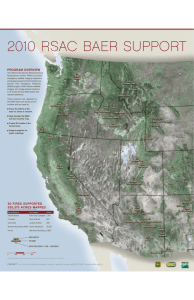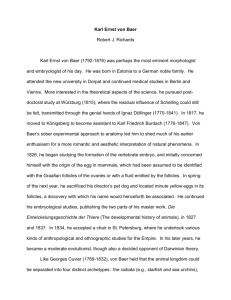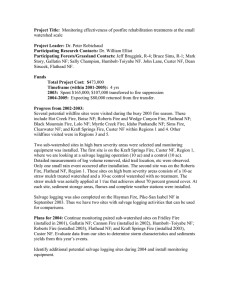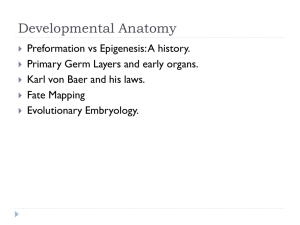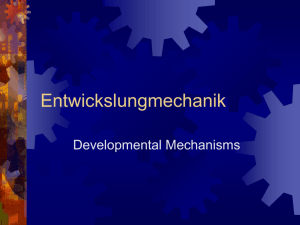Lec.2 Theories of Embryology Preformation theory
advertisement
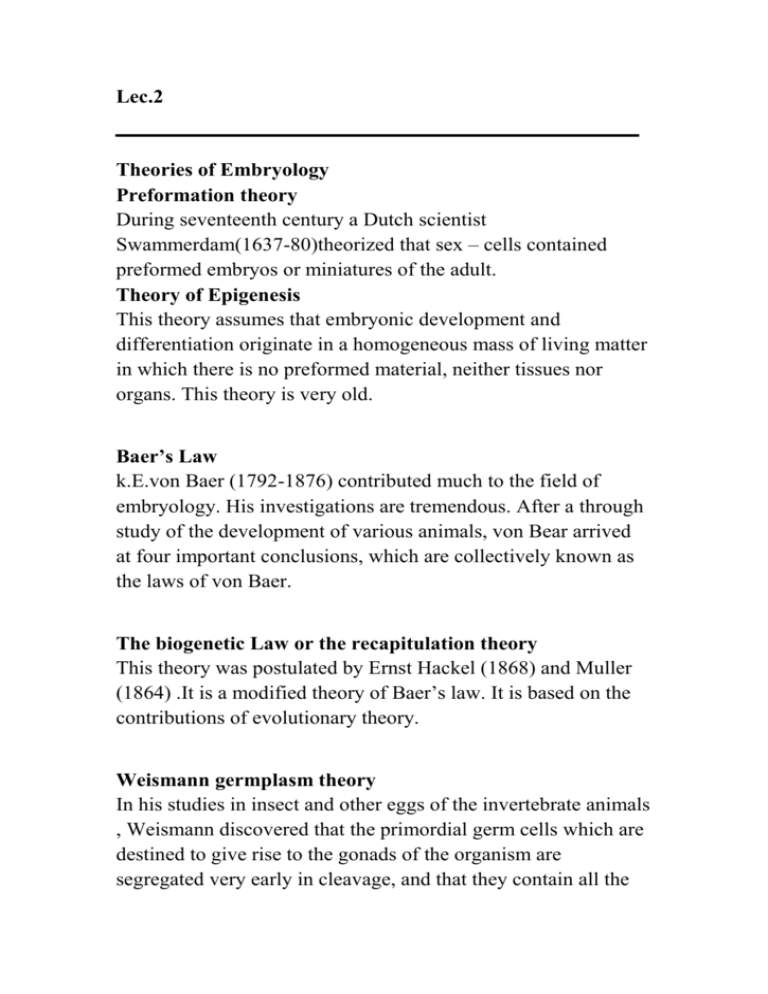
Lec.2 ــــــــــــــــــــــــــــــــــــــــــــــــــــــــــــــــــــــــــــــــــــــــــــــــــــــــــــــــــــــــــــــــ Theories of Embryology Preformation theory During seventeenth century a Dutch scientist Swammerdam(1637-80)theorized that sex – cells contained preformed embryos or miniatures of the adult. Theory of Epigenesis This theory assumes that embryonic development and differentiation originate in a homogeneous mass of living matter in which there is no preformed material, neither tissues nor organs. This theory is very old. Baer’s Law k.E.von Baer (1792-1876) contributed much to the field of embryology. His investigations are tremendous. After a through study of the development of various animals, von Bear arrived at four important conclusions, which are collectively known as the laws of von Baer. The biogenetic Law or the recapitulation theory This theory was postulated by Ernst Hackel (1868) and Muller (1864) .It is a modified theory of Baer’s law. It is based on the contributions of evolutionary theory. Weismann germplasm theory In his studies in insect and other eggs of the invertebrate animals , Weismann discovered that the primordial germ cells which are destined to give rise to the gonads of the organism are segregated very early in cleavage, and that they contain all the hereditary determinants necessary for the development of another individual. The Experimental Embryology Wilhelm His, the first experimental embryologist attacked the Biogenetic law or Haeckel vehemently. He pointed out that the causative agent for the development and differentiation of cells, tissues and organs could never be located by mere speculation along phylogenetic lines.
